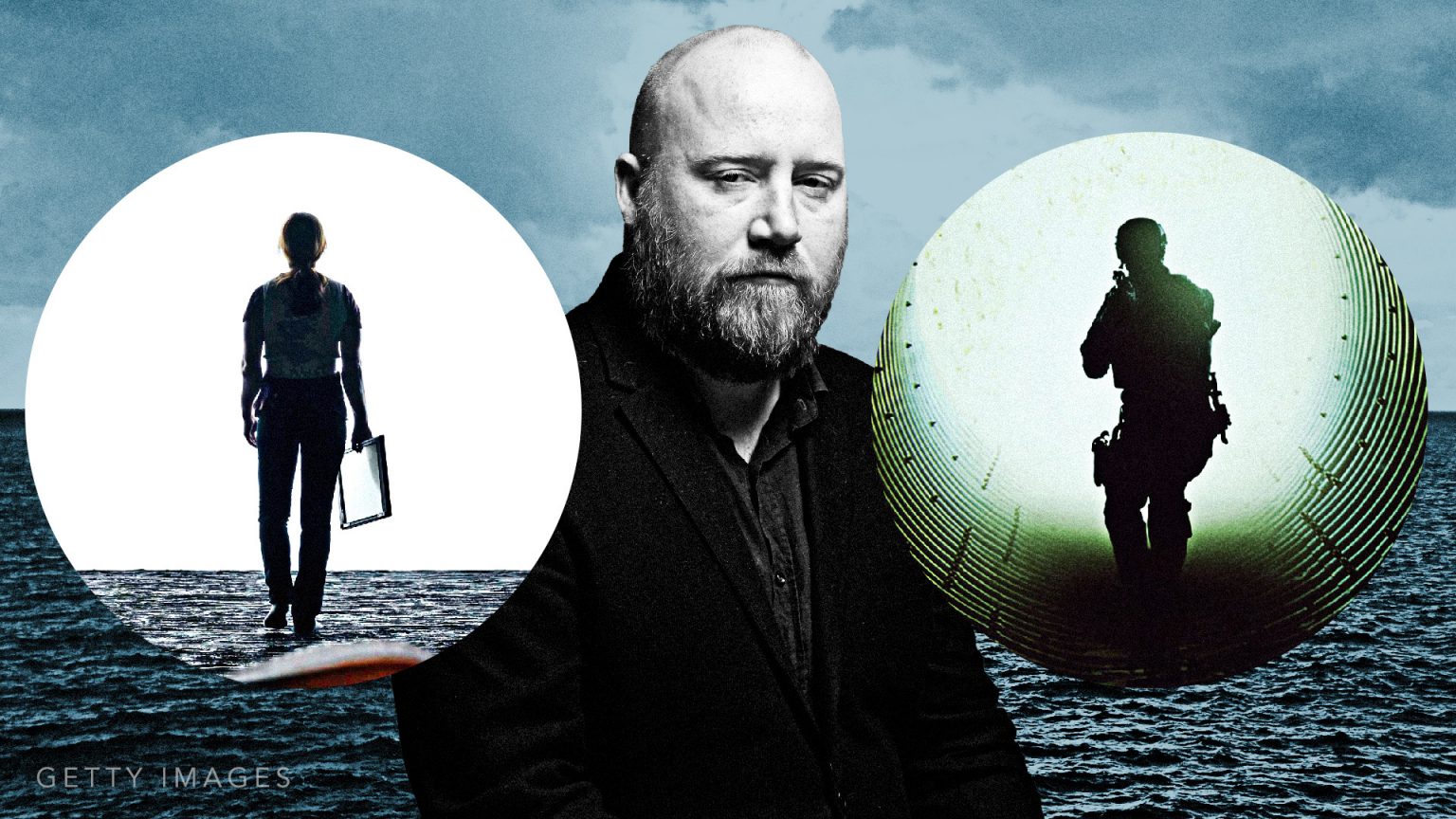Few modern composers are as influential as the late Jóhann Jóhannsson, who was known for writing immersive soundscapes that prioritized musical innovation. The fact that we at Fandor lie awake at night thinking of what Jóhannsson’s Blade Runner 2049 score would’ve sounded like — he was replaced by Hans Zimmer and Benjamin Wallfisch — testifies to Jóhannsson’s knack for crafting meticulous aural aesthetics.
This isn’t to say that Jóhannsson is unique in this regard, as any great composer tailors their specific style to serve the film at hand. For instance, in Schindler’s List, John Williams traded his signature romantic style for a sparse, elegiac violin melody. Similarly, Jerry Goldsmith foregoes his trademark pomp and bombast for the noir-inflected themes of Chinatown. But Jóhannsson’s aesthetics often resulted in compositions that accomplished far more than merely evoking a film’s tone.
Perhaps we see (or rather, hear) this clearest in Arrival. To mirror the film’s themes of communication and translation, Jóhannsson composed tracks that included human voices, working with the vocal ensemble Theatre of Voices and vocalist Robert Aiki Aubrey Lowe. Jóhannsson even sampled from avant-garde musician Joan La Barbara, whose trickling, punctuating vocal melody can be heard on “Heptapod B.” The result is a score that sounds wholly alien while insisting on underlying humanity, a sonic distillation of the film itself. But for Jóhannsson, this kind of work didn’t begin with Arrival; the score’s more ominous moments are reminiscent of the moodiness of Prisoners, while the understated emotionality and lengthy stretches of silence recall solo albums such as Virðulegu forester. But ultimately, Jóhannsson’s work on Arrival leans into its own distinct identity precluding immediate comparisons to previous compositions.
The same could be said of Jóhannsson’s work on Sicario — a percussive, pulse-pounding score that largely serves to heighten the dread in the movie. On tracks such as “The Beast,” it becomes evident that the score has more in common with sound design than traditional film music — a creative choice that would be fully leveraged in Darren Aronofsky’s mother!, on which Jóhannsson is credited as a music and sound consultant, rather than a composer. The film lacks a score, relying entirely on the sounds of the creaky wood house, and the hellscape that’s brewing within it. Again, Jóhannsson was willing to preference aesthetically above all else.
But for all of the hard edges and toothy tracks in Jóhannsson’s discography, at the end of the day, he was a composer capable of creating in the listener a heightened sense of feeling. For every prisoner or Sicario, he had a score like the Golden Globe-winning The Theory of Everything — music bursting with emotion, which is unrestrained, perhaps even amplified, by a proclivity for minimalism. On The Theory of Everything’s titular track, Jóhannsson needs little more than a piano to stir up a galaxy of emotion. This is possibly best exemplified by his track “The Whirling Ways of Stars that Pass,” on which, Jóhannsson goes so far as to evoke John Williams’ “Stargazers” from E.T. The Extra-Terrestrial.
Perhaps the essence of Jóhannsson’s style isn’t the weird, electronic-inflected ambience of Arrival and Sicario, but rather, a sincere pathos. Even in Sicario, this element of his music peeks through on tracks like “Desert Music,” where a lonely string melody defies the score’s brutality. And in Jóhannsson’s solo albums like Orphee or Englabörn, it’s on full display in tracks like “Flight from the City,” which blankets the listener in warmly sweeping piano chords. Jóhannsson is often said to have trafficked in ambient music, but it’s easy to forget that when his music is so emotionally provocative.
As a result, Jóhannsson’s willingness to embrace a film’s aesthetic, combined with the underlying emotion that drives his music, positions him as the ideal composer for the newly released Mandy — a film centred on a loving relationship that’s threatened by aestheticized, surreal violence. As such, Jóhannsson offers dreamy melancholy on “Children of the New Dawn,” his trademark pathos on “Mandy Love Theme,” and Sicario-Esque dread on “Forging the Beast” — altogether the score signals a convergence of Jóhannsson’s most defining traits as a composer, a fitting peak for one of the world’s most talented musicians.
But maybe Mandy gestures toward something greater. As a score that mimics the bloody chaos on-screen, while still finding its emotional centre, Mandy suggests that finding repose is possible despite the intense pain. Perhaps we can abstract this line of thought to grapple with Jóhannsson’s unfortunate absence, not only in the world of film scores but also in the world, period. Jóhannsson’s captivating, orchestral score for The Mercy, released before his passing in February, becomes a eulogizing, tributary aura as a result of what came later. We haven’t even heard the last of him yet — his final score, for Garth Davies’ Mary Magdalene, has yet to be officially released in the United States, and when it does, we’ll be listening to it on repeat. We may have lost Jóhannsson, but the artistry and emotion of his music will surely endure.




